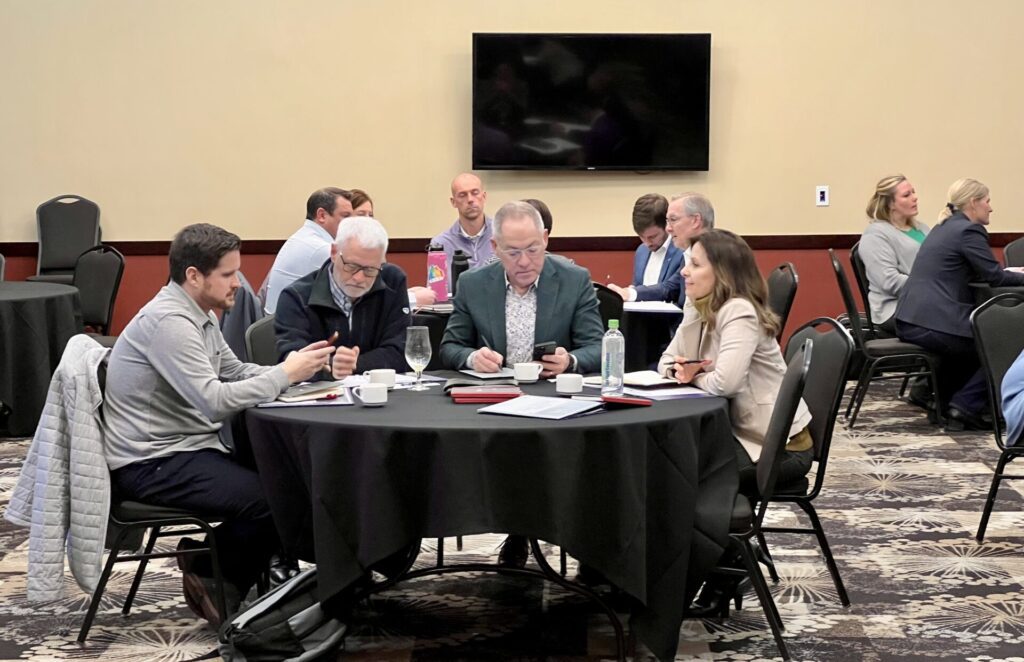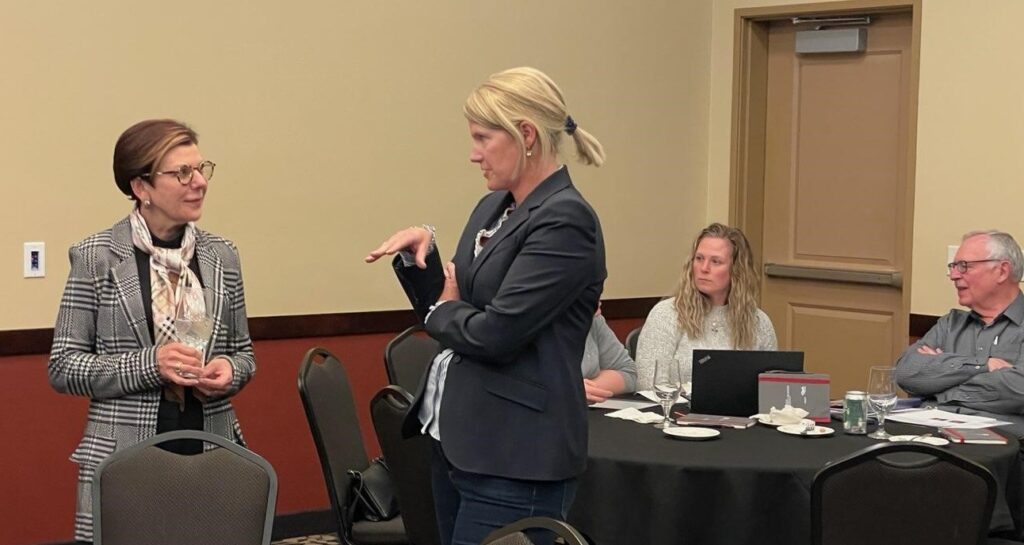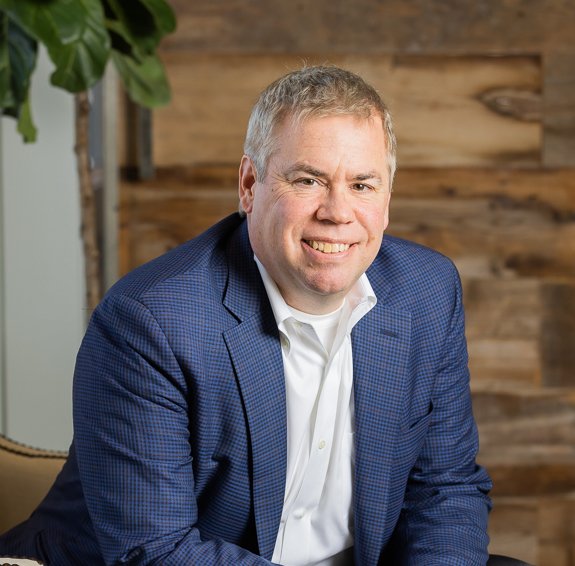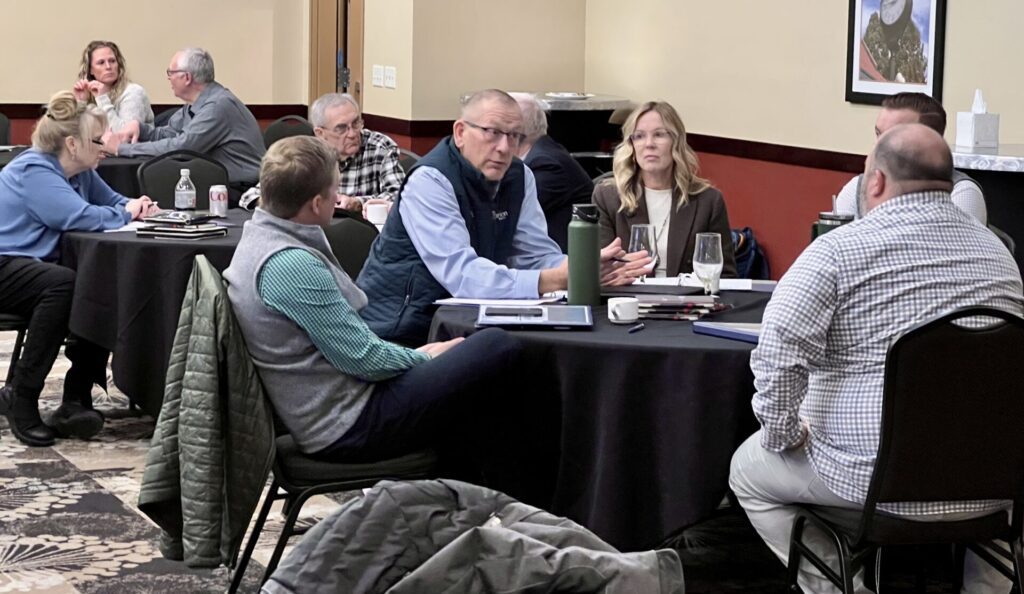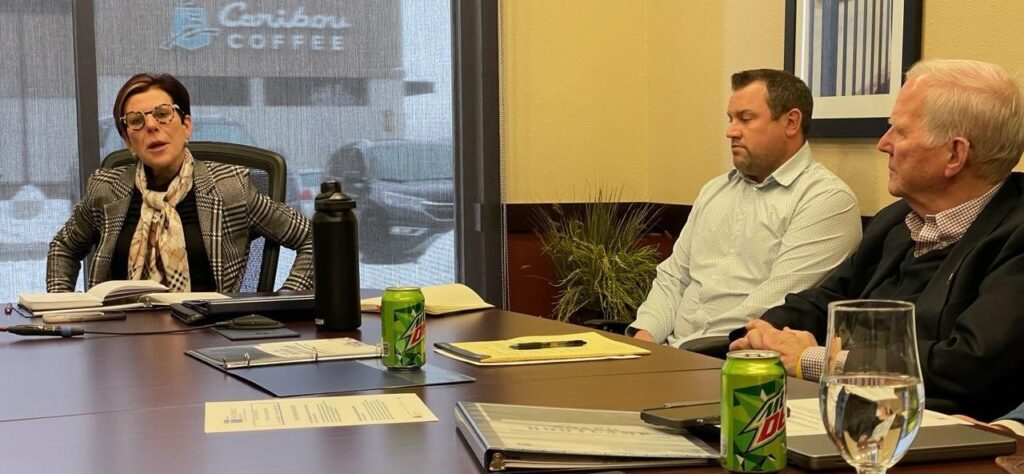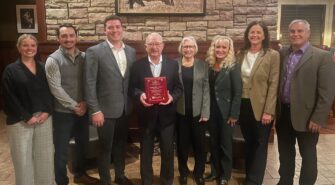Multigenerational ranch, lodge to host family business retreat
Recent News
July 17, 2023
This paid piece is sponsored by Prairie Family Business Association.
How much does Bill Shorma believe in using a board of directors?
“We’ve had five companies, and every one of them has had a different board,” said Shorma, a longtime family business leader who’s now founder and CEO of Rush-Co, a diversified manufacturing company based in Springfield in southeast South Dakota.
“It brings a calmness to a family board because you have professionals there with great insights if you bring in the right people. The family members learn but also listen and respect their input.”
Shorma will share his experience blending family business with board support at the upcoming Board Bootcamp on Sept. 19 at the Washington Pavilion in Sioux Falls, presented by the Prairie Family Business Association.
“One thing I was really apprehensive about was who in the world would want to sit on my small company board? How am I going to find someone?” he recalled.
“But what’s interesting is most people in family-owned companies in leadership positions feel a little complimented to be asked and want to help. And you can find many of those people through the Prairie Family Business Association, which is fantastic. I’ve had many I met through the conferences who have been really good, quality board members, so it’s been a good resource.”
Whether your family business is still considering an advisory or fiduciary board, or just beginning to work with one, or if you’ve had a board in place for years, Board Bootcamp will leave you with strategies to ensure you’re optimizing how you use a board.
“This has become a popular program for us as it’s designed for owners and board members themselves,” said Stephanie Larscheid, executive director of the Prairie Family Business Association.
“There are many best practices to take advantage of, and in one day, you’re going to be exposed to information you can immediately put to work in your business.”
Family businesses will be divided into two tracks at the Board Bootcamp – one for those already using a board for at least three years and another for those in the early stages or still exploring a board.
All sessions will be professionally facilitated by those with years of expertise working with family businesses.
We sat down with one of them – Andrew Keyt, founder and CEO of Generation6 – for a preview of what to expect.
You’ll be working with family businesses that have already been using a board for at least a few years. What are some of the common questions or challenges that arise for those more established boards?
The common themes for people who have a board are how to keep things interesting and not just fall into a pattern of doing the same old thing. You should have certain things on your board agenda that have their regular place and time, but you also want a certain amount of the agenda to be new and different and related to the challenges of the day. There are some common mistakes: just repeating old agendas or getting into a set of standard presentations that just get updated. There’s a place for some consistency, but you want to continually be asking about what you’re struggling with and what challenges you’ll face in the next 12 to 24 months that the board can help with. Do you have a clear strategic plan with clear measurables? Do you know where you want to be five years from now? If you can’t articulate that, it’s hard for a board to help you get there. But if you don’t have that five-year vision, a board should be able to help you figure out how to get there.
Another topic to address for established boards is refreshing directors. Sometimes, a company changes, and board expertise is no longer relevant. So it’s continually asking: Do we have the right people on the bus? Are we clear about where we’re going and structured to spend our time where we need to be to achieve our strategy?
What are some of the advantages you’ve found family businesses discover as they work with a board?
The advantage of a board starts with having to explain yourself to someone. The mere act of having to compile information and tell a story about your business and where you’re going will make you think differently about your business. Even before the board members have said a word, a board has already impacted you because you’ve had to think about how to organize and communicate this information, and that will make you think differently about how you’re doing.
The old saying of going from working in your business to working on your business applies here. Board conversations are about working on your business rather than working in your business. It’s the discipline of having a regularly scheduled time to do that with people who can help you see around corners. Ideally, when you put together a board, you’re including people who have been through challenges you’re going to go through as you pursue your strategy and help you avoid mistakes because they can see the future when you don’t. You’re not building your board for today. You’re building it for where you want to be in five to 10 years. And often, families find the board gives them the courage to make some hard decisions they might have put off without one.
What are some of your best practices in terms of how family shareholders and the family office should interface with the board?
Typically, when you’re talking family shareholders, they interact with the board members around the annual meeting, and sometimes it involves preparing the next generation. You could have a board-observer program for the next generation, and there are a lot of ways to structure that, and then generally around a board meeting there’s an opportunity often at a dinner the night before for the family members to meet with the directors. If it’s a fiduciary board, people don’t realize the number of decisions owners actually make is fairly limited. But how a family interacts with a board is an individual decision. The key is you’re open to the conversations and open to being accountable to people outside your day-to-day system.
Working with a board might be new both to family and nonfamily in the business. How do you suggest working this element into their onboarding and ongoing development?
When we help a family create a board, we actually do training with the executive team. One mistake early boards make is that they spend all their time preparing the independent directors and don’t’ do anything to prepare the team to understand what it means to report to a board. How do you frame issues and conversations? Without that training, you end up with an information dump on the board. We train the executive team to frame issues at a strategic level, identify questions they want input on, and we include the management team in the process of defining what they want the board to look like and who should be on it. They need to trust the people on the board to advise them in a valuable way. The idea is to develop an effective partnership between the board and management to help the team achieve their strategy and goals.
What should attendees at Board Bootcamp anticipate taking away from working with you?
No. 1, they’ll have a better understanding of their strengths and weaknesses, the things they’re already doing well and the things they need to improve. We’ll spend time making sure the time and energy spent on the board agenda are going to the right thing, we’ll talk about building candor and open discussions in the boardroom because if you don’t set the stage for good discussion, you’re limiting the capabilities of the board, and we’ll talk about how we evaluate and pursue a continuous improvement mentality to our board.
Hear from others
What do others who have gone through Board Bootcamp have to say? Here’s a sampling of recent feedback:
“Board Bootcamp was a great reminder that we are not alone in our challenges. It gave us the confidence and resources we needed to keep moving forward on our journey of forming a fiduciary board and transitioning ownership to the next generation. The connections we made with other family owners and with the speakers were equally as valuable as the information we acquired. You can’t talk about these topics with just anyone – it’s nice to feel like there is a private club of like-minded peers who support you and understand what you are going through.”
“This was just what we needed to start the process at our company of starting a board of directors. The information was well delivered by experts, and the format allowed for plenty of questions and insights on the experiences of others who are attempting to solve some of the same problems as us. Very worth our time!”
“This Board Bootcamp was perfectly timed for our need to learn about and take next steps at establishing a board of directors in our company. The information was very valuable and in many cases changed the way we were thinking we’d need to go about getting started. The consultant/presenters were a wealth of knowledge, and we look forward to working with them in the future as we take next steps!”
Ready to reserve your spot at Board Bootcamp? Click here to take advantage of early registration at a discount through July 31.


